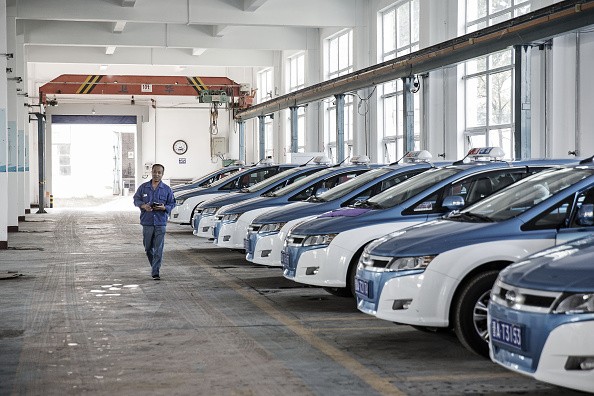China's electric cars may soon dominate the global markets as the Volkswagen scandal is expected to result in a shift in engine technology, tilting the balance of power in the vehicle markets in the U.S., Europe and Asia.
The Financial Times reported that Germany has expanded its criminal probe into the Volkswagen diesel emissions scandal to include Hans Dieter Pötsch, chairman of its supervisory board.
The scandal is also seen to impact on Volkswagen's 11 million cars which use software to help it pass the emissions tests, costing the company about €18.2 billion. It has also dampened the industry's hope to use "clean diesel" as a lasting alternative to petrol in Europe.
According to the report, the VW scandal will result in a shift in engine technology that will be used in future cars and affect the global markets. It would drive carmakers to take electric cars as option and go to China where the technology is already practiced.
Europe aims to curb greenhouse gases and pollution with the use of fuel-efficient diesel and exhaust filters. However, last week, a court has instructed the U.K. government to reduce diesel fumes in cities faster than what was planned.
But China is already doing what other countries such as U.K. are now trying to do, which is to ban cars from urban centers by auctioning car plates to owners and giving access to new energy vehicles such as electric cars and plug-in hybrids.
The report said that the use of electric cars in China is advanced as 330,000 new energy vehicles were sold in the country last year, although globally, the market is still small. Most of the electric cars sold were purchased by local government and state-owned enterprises to be used as delivery vans and for local ride-sharing schemes.
By making the first move, Chinese companies such as BYD and Anhui Jianghui (JAC) have the advantage in regulation, technology and manufacture of electric cars.
As Europe tightens its emissions standards with the VW scandal, the price of electric cars is expected to level up with diesel cars, which have become more expensive for carmakers to offer. It is expected that diesel cars will only account for 9 percent of European sales by 2030, much lower compared to five years ago with 56 percent, according to AlixPartners, a consultancy firm.
In addition, foreign plug-in hybrids, such as the U.S.-made Chevrolet Volt and the German BMW 330, uses two engines--one combustion and one electric, to make up for the electric car's limited range and the lack of charging stations. These cars also need expensive components from prominent suppliers, such as Robert Bosch and Delphi.
However, pure electric vehicles do not require costly and complex components and this would give China an edge to surpass U.S. and Western technology. In April, the Chinese government unveiled its five-year development plan that promotes green technology.
As carbon emissions regulations may drastically affect Europe's dominance in diesel, China may likely lead the world's electric vehicle market through its investment in green technology.




























